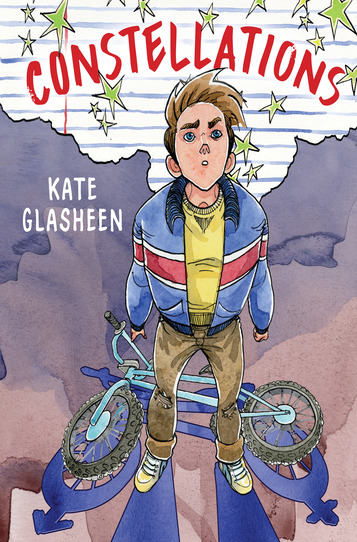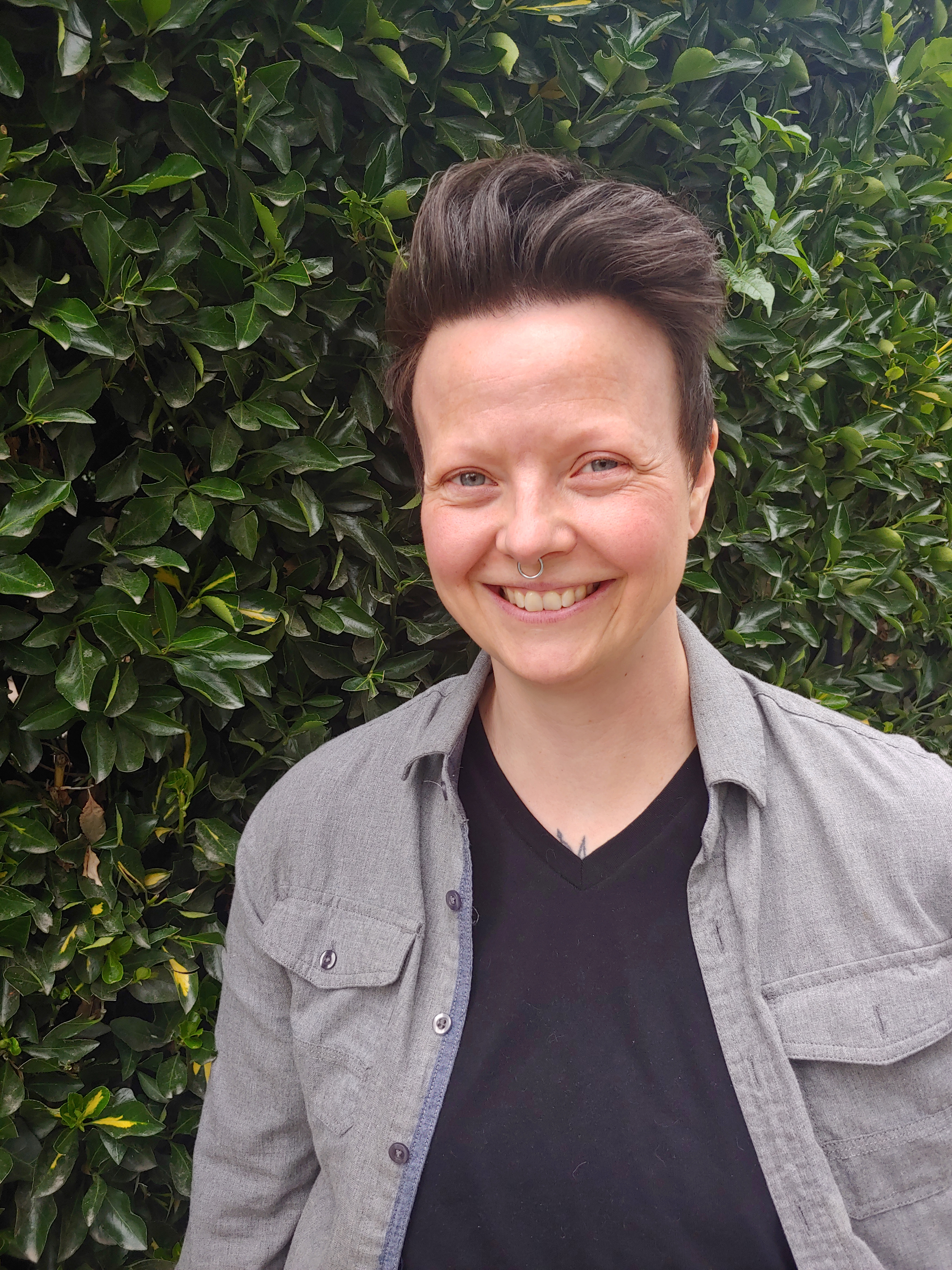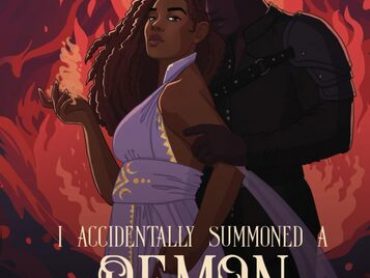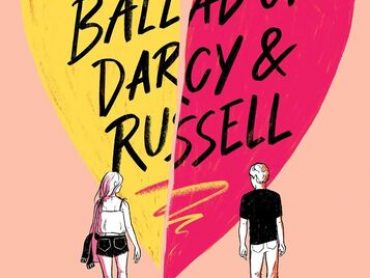Kate Glasheen is the author of the graphic novel Constellations. Constellations follows Claire, a queer teen finding their way. The graphic novel explores hope, humor, and survival. YEM was able to speak with Kate about where the idea for Constellations came from, the process of making a graphic novel, and what they hope their readers will take away from reading it.
Young Entertainment Mag: When did you first know that you wanted to make a graphic novel?
Kate Glasheen: I’ve loved and made comics since my beginning. I don’t remember the exact starting point– I assume it was with seeing the Sunday funnies in my parents’ newspapers, or rooting through my older brother’s comics– but it goes back as far as I remember.
YEM: Where did the idea for your graphic novel Constellations come from?
Kate: I spent time in rehab myself, the first stint was as a teen and the second at the age of 32. The camaraderie, deception, and heartbreak in those walls made for some of the most powerful moments I’d ever been a part of. The people were complicated but the brutality was simple; the stakes were so high and it made it all so poignant.
I wanted to make a story about that, both to share the experience with folks who haven’t had it themselves and to offer a different version of it to those who have. It was more about Claire’s time in rehab than it was about Claire at first, but as work continued on the project it became harder and harder to talk about why Claire was in rehab without dragging my own baggage onto the pages.
YEM: Did you always know that you wanted to make a graphic novel about a queer teen?
Kate: No. In fact, for the majority of my career in comics it would’ve been the last thing I would make. I’m a private person and I never wanted to lead with that information about myself. But after a lifetime of not being allowed to be private about it, it felt necessary to finally lean in to it, and explore why that was and what it meant for me.
YEM: What does it mean to you to be able to represent queer kids in Constellations?
Kate: It’s absolutely an honor and a privilege. It’s also pretty intense. I feel like a lot of other creators in my position are multifaceted in this. Like they can be leaders and mentors and have the tools to guide kids who may need that kind of direction. Meanwhile, I’ve thrown this beacon out there for people to find, but then when they do, I’m still such a kid when it comes to understanding myself, so early on in the process, that it feels like my story is all I can offer so far. Which is valid! Just adding voices and experiences to the collection of what that has looked like for queer folks is important to queer history. But I’m hoping as I settle into the role more I have more to offer in addition to my story.
YEM: Was there a lot of inspiration that came from your real life?
Kate: This book is Claire’s story for sure, but their story is that of our shared experiences. I’ve spent time in rehab for substance abuse, and I’m trans but I struggle with it, with a lot of the reasons why coming from my time growing up in Troy in the 80’s. So all of the material in this book is pulled from or inspired by events in my own life, though Claire’s version covers just a few years in a sort of curated representation of all my 40.
YEM: What is the process of making a graphic novel like?
Kate: Everyone has their own process and mine is to work on imagery and written word simultaneously. I find they really feed off each other in the blueprint stages– like one inspires an idea for the other and vice versa and I just bounce back and forth between the two until I have the core of something that feels valuable. Then I go to work to fill in the blanks that provide the why’s and how’s of the story I want to tell.
YEM: What is something you learned about yourself during the process?
Kate: The act of making Constellations was my own art therapy. The character of Claire acts as a buffer between me and the story, gave me some distance, gave me a box to deposit my experiences in, and view and dissect at a distance. Making this book was a crucial tool in unearthing who I am under the decades of things I’ve tried to bury it under, understanding it more, and accepting it more.
YEM: What do you hope your readers will take away from your book?
Kate: I mean, the biggest thing is that, I hope if any readers who grab this book are at the edge or getting close one, it gives them a little solace, or support, or even tactics to help them keep their heads above water with Charlie’s therapy sessions. I put those in there, in detail, of course for the narrative, but also specifically for this purpose. I wanted Constellations to have that secondary function as its own support group for whoever might be reading it and needing that.
Secondly, addiction is brutal, but addicts were all kids once, not getting something crucial they needed to grow into whole adults. Gender’s at the center of this story but this story predates the contemporary conversation around gender.
So Claire’s revelations on these things, and the rest of the kids’ revelations on these things, are simple. They’re unadulterated. It makes me wonder and hope that their clumsy earnestness has the potential to sidestep some degree of the knee-jerk reactivity all tangled up in the zeitgeist—maybe create an opening for empathy that was previously closed.
YEM: Is there any advice you have for someone who wants to make a graphic novel?
Kate: If you’re getting stuck working on an idea, shift mental gears from trying to make something amazing, to just making something. Break through paralysis with action severed from what kind of quality the action is. Revisions are a necessary part of most people’s workflow, so remove the unrealistic pressure of making something incredible the second your pen hits the paper! The high caliber comics you read most likely started from a point of low caliber.
YEM: What was the hardest part of making Constellations?
Kate: Figuring a lot of stuff out about myself on the pages meant I was being very public with a sensitive process involving very private information. Plus, people weren’t just privy to things I generally kept to myself, they’re now privy to the entire process of dissecting it. They don’t just see me as who I’m working towards, they get to see the work-in-progress, my multiple rough drafts. It’s an incredibly vulnerable spot to be in.
11. What made you want to set the book in 1980?
Kate: There’s two big reasons behind setting this book in the 80’s. The first is that that’s when I grew up, so that’s the era authentic to the experiences within story I was telling. It’s also important because the 80’s predate the modern conversation about gender. Trans wasn’t in the vernacular, it wasn’t understood by people experiencing it so it certainly wasn’t understood by those who weren’t. Growing up, I felt something intrinsic was very wrong with me because there was just so much friction in existing. Society was telling me there was no place for me as I was, but there was no label, no explanation, and definitely no support. I was an island with it, as were many other trans kids growing up in the 80’s, and that will destroy your heart and your brain. Information, and access to information, through the internet is such a crucial lifeline for queer kids that the 80’s did not provide.
12. Are you going to make more graphic novels in the future?
Kate: Oh, yes. I thought I was done with it because it is a brutal profession to try and make your way in, especially if what you make doesn’t quite fall into what most folks are looking for. At the time I sent out the proposal, Constellations was going to be my last go. After 40 publishers said no I was trying to figure out how to move on, what to do next, just feeling deeply rejected by the field I’d tried to survive in for two decades.
Then, short version, Holiday House said yes, and made me feel really supported throughout the process. I got to feel what it was like to love making comics again. If that component is there at all, I just don’t want to be doing anything else.
I’m currently working on an absolutely bonkers bodily apocalypse story at the moment. A sort of sardonic science fantasy that I hope I can share more about soon.





